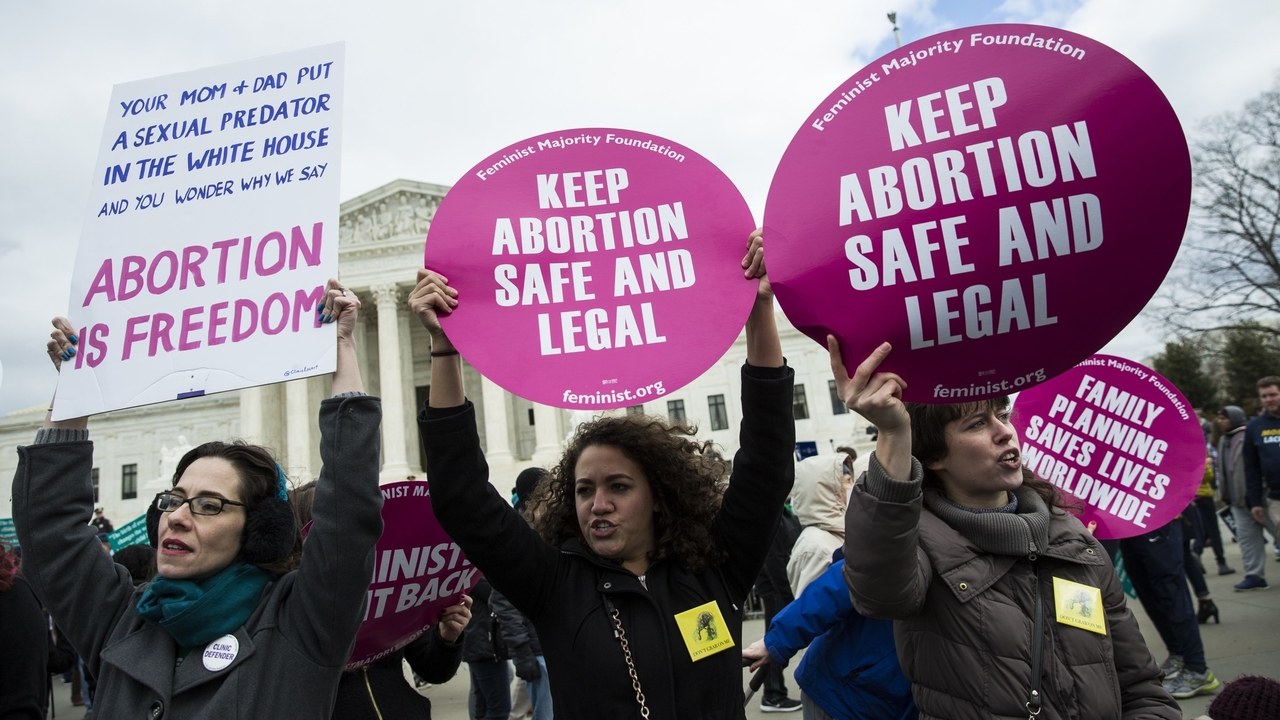Here's How You Can Help Women in States With Extreme Abortion Bans

On Tuesday, the Alabama Senate approved a bill that would outlaw almost all abortions in the state. The new legislation would ban abortions at every stage of pregnancy—with only an exception for when the mother’s life is at serious risk, but not in instances of rape or incest. It’s not just women who would be penalized under the ban. Doctors who perform the procedure would be charged with felonies, and could face up to 99 years in prison.
Alabama’s abortion ban comes just after four other states—Georgia and Ohio, included—passed so-called “heartbeat” laws, which ban abortions at about six weeks gestation. But this bill is the most extreme measure we’ve seen so far.
While none of these bills have been enacted—and all are likely be blocked in the lower courts—they’re indicative of a larger fight to control women’s bodies and potentially to overturn Roe v. Wade. Here, we’ve outlined how to help fight against these bans—and the overall effort to limit women’s reproductive rights.
Donate to organizations on the front lines
In addition to supporting national organizations leading the fight to protect women’s reproductive rights—like Planned Parenthood—there are many grassroots organizations helping women on the ground. Here are a few organizations to consider that are providing resources and access to local women looking to obtain abortions:
-
The Yellowhammer Fund: Located in Alabama, the Yellowhammer Fund offers funding for women seeking treatment at one of Alabama’s three remaining abortion clinics. The fund will also help with other barriers to access, such as travel or lodging.
-
National Network of Abortion Funds: NNAF is a network of funds—including the Yellowhammer Fund—across 38 states that helps eliminate economic for low-income women looking to obtain an abortion. They work with funds everywhere from Georgia to Texas to Ohio.
-
Magnolia Fund: A Georgia-based organization that provides resources to support the reproductive choices of women in the South, as well as to help defray the cost of abortion fees for women in Georgia.
-
Access Reproductive Care—Southeast: ARC helps people in the South—in states like Alabama, Florida, Georgia, South Carolina, or Tennessee—receive access to safe and affordable reproductive care by offering financial and logistical support.
Work to elect progressive local leaders
25 men voted to pass Alabama’s abortion ban. And the other extreme abortion bans in states like Georgia have also succeeded in local legislature, thanks to conservative, mostly male politicians. In other words, one of the most effective ways to put a stop the bans is by ousting these men from office. To do that, we have to support—and help elect—their progressive opponents. Here’s a few places determined to do just that:
-
She Should Run: A nonpartisan nonprofit working across the country to get more women elected to office, at all levels.
-
Emerge America: An organization that trains progressive women to run for elected office in 25 states, such as Georgia, Alabama, Wisconsin, Virginia, and more.
-
Higher Heights for America: A national membership-based organization dedicated to electing black women to office across the country.
-
EMILY’s List: An organization dedicated to electing pro-choice Democratic women to office by guiding women through their campaigns from start to finish, with trainings, webinars, and volunteer support.
-
Run for Something: An organization that recruits young progressives to run in down-ballot races.
Volunteer on the ground
If you live in a state with an extreme abortion ban, or close enough to one to travel there, you can volunteer to be a clinic escort. As an escort you’ll accompany women as they enter an abortion clinic, and oftentimes have to walk past protesters. Connect with Planned Parenthood to look for opportunities, or use their Health Center guide to get in touch with local clinics to see how you can best be of service.
